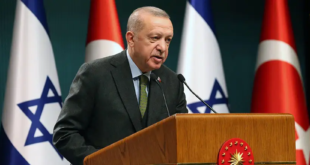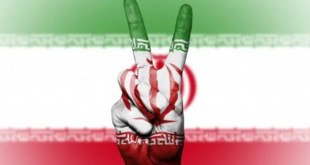 TEHRAN (FNA)- For decades the United States has funded an effort intended to persuade Christians, Zoroastrians and Jews move out of Iran. Now their leaders are questioning American motives as sects that have lived here for thousands of years dwindle rapidly as a result of the migration.Leaders of Iran’s non-Muslim religious minority groups say their communities are not mistreated by the Iranian government. Instead, some Christian and Zoroastrian leaders say, their members are leaving mainly to take advantage of the program’s offer of a streamlined path to legal residence in the United States for a fee of $3,000.
TEHRAN (FNA)- For decades the United States has funded an effort intended to persuade Christians, Zoroastrians and Jews move out of Iran. Now their leaders are questioning American motives as sects that have lived here for thousands of years dwindle rapidly as a result of the migration.Leaders of Iran’s non-Muslim religious minority groups say their communities are not mistreated by the Iranian government. Instead, some Christian and Zoroastrian leaders say, their members are leaving mainly to take advantage of the program’s offer of a streamlined path to legal residence in the United States for a fee of $3,000.
Christians and Zoroastrians leave because of economic problems, but such problems affect all Iranians, said Yonathan Betkolia, an Assyrian Christian leader and member of Iran’s parliament who holds the United States responsible for his community’s decline. “They give all those green cards to our people. Their only goal is to propagate the idea that Iran is mistreating its minorities.”
The program is coordinated by the New York-based Hebrew Immigrant Aid Society, or HIAS, which traditionally has helped resettle Jews in the United States. It received about $3.4 million in US government funding last year to persuade non-Muslim minorities leave Iran.
Despite animosity between Iran and Israel, Jews in the country say they can practice their religion freely. More than 25,000 Jews remain in Iran, community leaders say, making it the largest Jewish population in the Middle East outside occupied Palestine.
The State Department says 2,842 Jews have left Iran for the United States under the program in the past decade.
“The migration is a big, big problem for all non-Muslim minorities in Iran,” said Kurosh Niknam, a parliament member representing Iran’s Zoroastrians, adherents of the pre-Islamic national faith. “I wish everybody would come back to Iran.”
HIAS was selected early this decade by the US State Department to be the sole agency for processing Iranian minorities from Vienna, where it operates what it calls an “overseas processing entity.” In 2004, Congress passed a law that made it easier for religious minorities from Iran to qualify as refugees.
US funding for HIAS’ work on behalf of Iranians has almost tripled, from $1.24 million in 2002 to $3.46 million in 2007 as the United States is at odds with Iran over a range of different issues, including Tehran’s progress in the field of nuclear technology.
Betkolia, the Assyrian Christian parliament member, said he and his co-religionists were “freer in Iran than our Muslim brothers.” The politician sat in his large office in the Assyrian club in Tehran. “We can drink, our boys and girls can mingle in our clubs freely and we can dance and sing,” he said. “Muslims are not allowed to do those things in here.”
The Iranian government regards Christians, Jews and Zoroastrians are respected as being members of traditional monotheistic religions, but the US is trying to portray Iran as a country where minorities are persecuted.
 Eurasia Press & News
Eurasia Press & News



